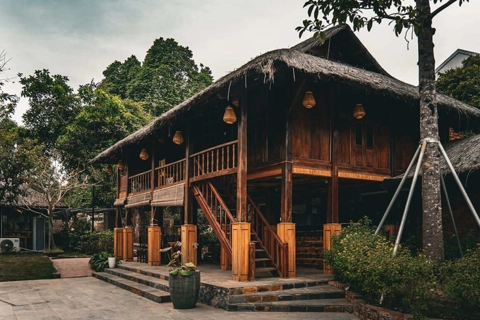Travel
Vietnam to develop sustainable tourism
Sep 28, 2017 / 04:30 PM
Developing sustainable tourism in combination with preserving and promoting national cultural values, and protecting landscapes and the environment is among targets set in Vietnam’s master plan on tourism development by 2020, with the vision to 2030.

Vietnam to develop sustainable tourism.
|
According to the Vietnam National Administration of Tourism under the Ministry of Culture, Sports and Tourism, the Vietnamese tourism sector has enjoyed sound growth in the number of tourists, revenue and accommodation facilities since 2011.
Tourism has made significant contributions to protecting heritage values and relic sites in many localities. It has an important position in the country’s socio-economic development strategy.
On the occasion of World Tourism Day 2017 (September 27), themed “Sustainable Tourism – A Tool for Development”, Secretary General of World Tourism Organisation Taleb Rifai delivered a message saying that respecting nature, culture and the host will make significant contributions to ensuring sustainable tourism development.
He stated that tourism is the third largest export industry in the world after chemicals and fuels. It brings hope, prosperity, and understanding to many people in the world, he said. More than 1.2 million travelers crossed international borders in 2016 and the figure is expected to reach 1.8 billion by 2030.
The United Nations General Assembly declared 2017 as the International Year of Sustainable Tourism for Development, an opportunity to promote tourism development to build a better future for people, planet, peace, and prosperity.
A conference earlier this month hosted by Canada's Environment Minister Catherine McKenna brought together 34 countries in a bid to maintain momentum to implement the Paris accord as the United States acknowledged it will not attempt to renegotiate it.
In much the same way, we must use the collective momentum provided by the International Year of Sustainable Tourism for Development to use our sector's distinct influence and capabilities to help shape a more sustainable future for our planet. Otherwise, we will have to watch everything we value and cherish erode and disappear.
At the 70th Session of the UN General Assembly in 2015, 154 heads of state or governments adopted the bold and ambitious 2030 Agenda for Sustainable Development, which included 17 Sustainable Development Goals that aim to end poverty, protect the planet, and ensure prosperity for all.
Based on this universal, integrated, and transformative vision, the United Nations World Tourism Organization (UNWTO) is working with governments, public and private partners, development banks, international and regional financial institutions, UN agencies and international organizations to help achieve these goals.
Tourism as one of the world's largest sectors, supporting 284 million jobs and generating 9.8 percent of global GDP, we can help to increase public appreciation of the environment and awareness of the value of connecting with the natural world and other cultures and communities in a sustainable way.
Tourism can also contribute to environmental protection, conservation and restoration of biological diversity and sustainable use of natural resources. The beauty of the natural world is a vitally important asset for our sector; maintaining the vibrancy of natural sites is crucial to tourism organizations' ability to continuously benefit from their existence.








